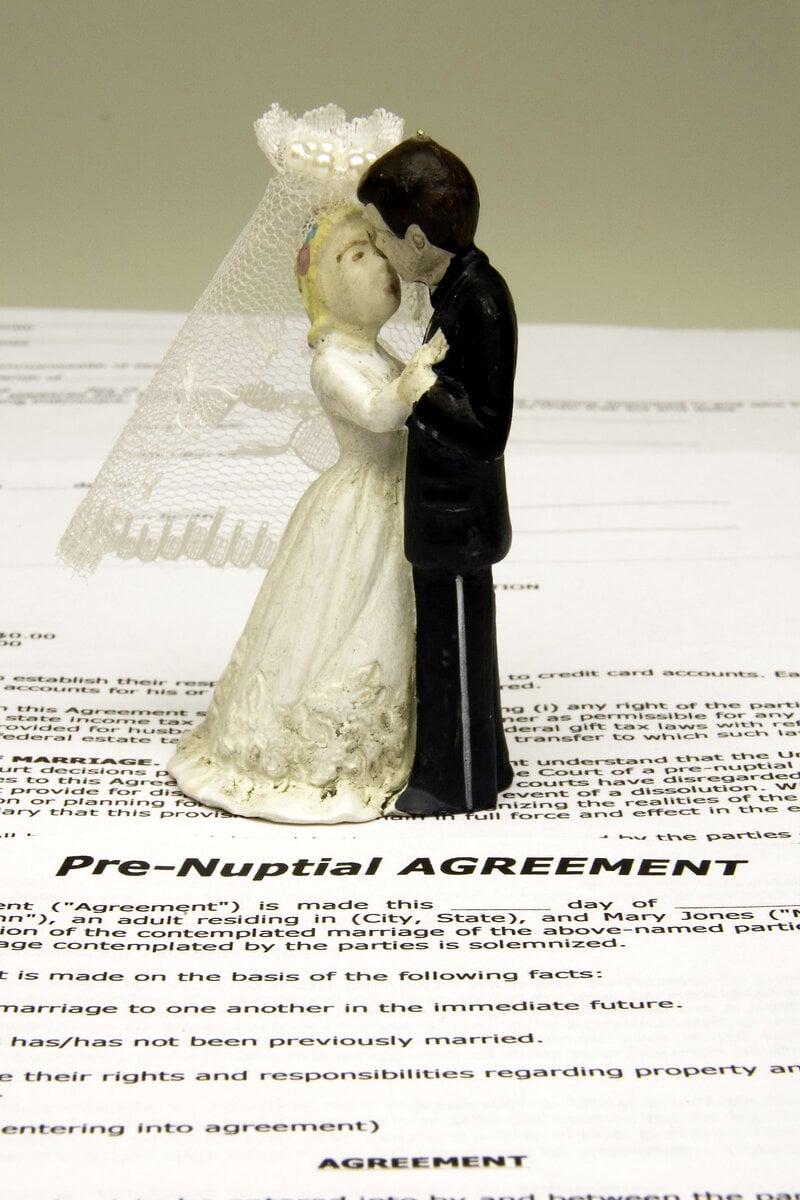 Prenuptial agreements have evolved over the past thirty or so years. Once used primarily by wealthy – or higher earning – individuals to protect certain assets in the event of a divorce, we see them more often these days in middle-class unions – often to protect one or both partners’ business assets.
Prenuptial agreements have evolved over the past thirty or so years. Once used primarily by wealthy – or higher earning – individuals to protect certain assets in the event of a divorce, we see them more often these days in middle-class unions – often to protect one or both partners’ business assets.
The role of prenuptial agreements (prenup) in divorce varies depending on an individual’s situation, and they do not make sense for everyone. Also, if they are poorly drafted, or both parties do not have equal access to sound legal advice before signing a prenup, they can be void in a court of law. So, working with a reputable, licensed lawyer specializing in premarital legal counseling and prenuptials is essential if you want your prenuptial agreement to stand the test of time.
Do You Need A Prenuptial Agreement Before Marriage?
The definition of a prenuptial agreement (also called a premarital agreement) is:
…a written contract created by two people before they’re married. Typically, a prenup lists all of the property each person owns and debts they owe, and it spells out each person’s property rights during the marriage and in the event that they later get divorced (Nolo).
Topics Covered By PrenuptialAgreements In California
California is a community property state, which means that anything you owned before you were married is yours; anything your spouse had before the marriage is theirs; anything you acquire together during the marriage (outside of personal inheritances or gifts) is split between the two of you.
Prenuptial agreements are a way to create firm boundaries around things that may be more difficult to discern between individual or community property if you decide to dissolve the marriage in the future. Some of the most common topics covered by prenups in California include:
- Property management, payment, or tax liability after the divorce.
- Spousal support limits
- Separating or specific divisions of properties, finances, or other assets that would have been community property otherwise.
- Protection from the other person’s debts. This is a big one. Most debt acquired after marriage is split – whether a spouse knows about it or not. Your prenuptial can protect you from your spouse’s debt in certain cases.
- Specifics around how a person’s (or the couple’s) business(es)/business assets will be divided, sold, or otherwise handled.
- Provisions for children from a prior marriage, including which property/assets they will inherit – even after a divorce.
- And more.
There are pros and cons to using prenuptial agreements, and, as with any legal documents, you should never take their creation lightly.
Topics NOT Covered In Prenuptial Agreements
Some topics or potential areas of concern are not part of prenuptial agreements.
- Personal preferences or requests. For example, you can’t specify how holidays will be chosen or paid for or who will do what chores. Prenuptial agreements only cover topics and areas that come into play during a divorce.
- Child support or visitation. The court has the ultimate say on what’s in the best interest of the child(ren) in a divorce. So, any discussion of child custody, support, or visitation won’t hold any weight in a prenuptial. If you get divorced, the court will dictate who pays who what for child support – if any is to be paid at all.
- Anything already determined as illegal. Any clauses dedicated to illegal activities or enterprises threaten the entire agreement.
- Provisions to strike spousal support rights. While prenuptial can limit spousal support amounts, they cannot be waived entirely. The courts can counter that depending on the situation at the time.
- Anything that encourages divorce. Marriages (and divorces) should be genuinely desired. You shouldn’t marry someone for financial gain (including tax breaks); nor should you divorce for that reason. Courts can negate or strike certain clauses if the premarital agreement seems to include terms that make it financially lucrative for a couple to divorce.
Ultimately, prenuptial agreements are designed to keep things as fair as possible in a divorce, protecting everyone’s best interest.
Seek Independent Or Collaborative Legal Counsel To Create A Prenuptial Agreement
Prenuptial agreements require that both parties understand what they are agreeing to. If it appears later on that one party or the other didn’t have all of their faculties, did not have time to properly review the document, or that were rushed or coerced in any way, the courts can terminate the original agreement and make their own judgments.
We recommend all couples seek independent or collaborative counsel when creating a prenuptial document. When doing so, lawyers will ensure the document is:
- Meets all of the current legal family law criteria.
- Reviewed by both parties.
- Understood by both parties.
- Free of any errors or discrepancies that could threaten its legitimacy down the road.
- Signed with complete willingness and without reservations (never sign any legal document until you are 100% confident with its wording and implications).
- Properly filed.
Meeting with lawyers to thoroughly discuss the pros and cons of any decision or statement finalized in the document is the best way to ensure it serves the best interest of both parties.
Draft Your Prenuptial At The Law Offices Of Gerard A. Falzone
Are you interested in using a premarital agreement before you get married? Do you have questions about whether or not a prenup makes sense for your needs, goals, and situations? Schedule a premarital legal counseling session with Gerard A. Falzone. We’ve helped Bay Area couples make sound legal decisions for more than thirty years.
